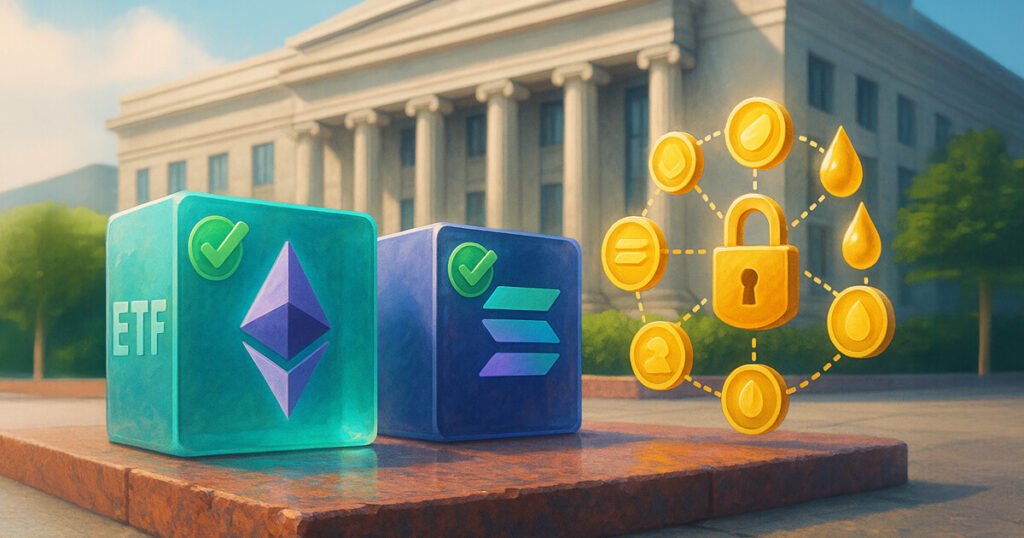The Future of Crypto ETFs: Staking for Enhanced Yields
In a significant update for the cryptocurrency investment landscape, two major digital asset managers, Bitwise and 21Shares, have revised their Ethereum and Solana Exchange-Traded Fund (ETF) filings with the U.S. Securities and Exchange Commission (SEC). This development could democratize staking and redefine how crypto ETFs operate in the United States. The amended S-1 statements now hint at the potential for these funds to not only hold cryptocurrencies but also to actively engage in staking, a process crucial for validating transactions on proof-of-stake blockchains.
Understanding Staking and Its Implications
Staking entails locking up cryptocurrency in a network to assist in transaction validation and network security, a practice that can yield rewards for investors. Currently, Ethereum offers staking rewards ranging from 3% to 4%, while Solana boasts rewards between 7% and 8% annually. Including staking capabilities in ETFs could open up new revenue streams for these financial products. Prior to this, U.S.-listed crypto ETFs had been constrained to passive asset holdings, without participating in network consensus or earning rewards. This shift could attract a new class of investors interested in both price appreciation and yield generation.
The SEC’s Evolving Stance on Staking
The amended filings come after a prolonged period of lobbying by ETF issuers, seeking regulatory clarity around the use of staking income. Although the SEC has yet to approve the feature, the new language in Bitwise and 21Shares’ filings suggests that the agency may be reconsidering its earlier restrictive position. This indicates a potential regulatory shift, especially in the face of growing pressure to allow ETFs to contend with on-chain yield opportunities available to investors in other markets.
Competitive Landscape for Crypto ETFs
The integration of staking within ETFs could fundamentally alter the competitive landscape for these financial products. Traditional crypto ETF performance has primarily hinged on management fees and liquidity. However, the potential for generating staking rewards would add a new dimension to investor considerations: net yield. This change could enable investors to compare and choose funds not only based on cost but also on actual performance, ushering in a new era of performance metrics in crypto investments.
Bridging the Gap: Traditional Finance Meets DeFi
As the SEC contemplates these amendments, the potential for staking within ETFs could act as a bridge between decentralized finance (DeFi) incentives and traditional financial products. This integration could lead to a more cohesive investment strategy for a broader range of investors. By allowing traditional financial vehicles to tap into the yield-generating potential of cryptocurrencies, new opportunities may arise for income-focused investors who have been hesitant to navigate the complexities of the DeFi space.
Looking Ahead: What’s Next for Crypto ETFs?
While the SEC has not issued a clear statement on the matter, the very act of including staking capabilities in ETF filings marks a noteworthy step forward. Analysts view this development as a potential sign that regulatory tides may be changing. If approved, ETFs that incorporate staking could cater to a more diverse range of investment strategies, making them more appealing to both retail and institutional investors. In conclusion, as the landscape continues to evolve, the intersection of crypto and traditional finance may become an increasingly important area for future investment opportunities.
This update sparks an enriching conversation about the future of crypto ETFs and their ability to adapt in a rapidly changing market. It not only reflects the growing legitimacy of cryptocurrencies but also highlights the need for a more flexible regulatory framework to accommodate innovation within financial products. As issuers like Bitwise and 21Shares push boundaries, the potential for ETFs to generate income through staking could redefine what it means to invest in digital assets.

















